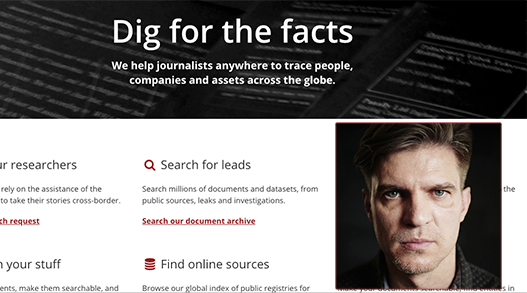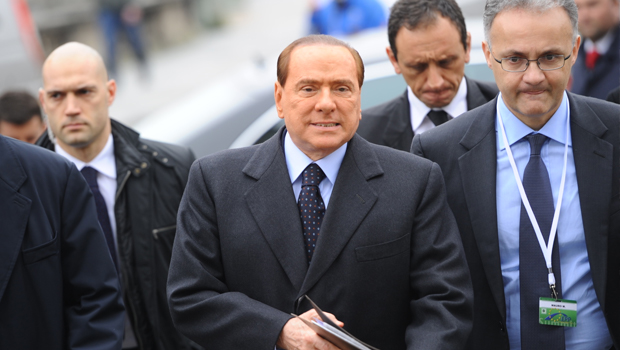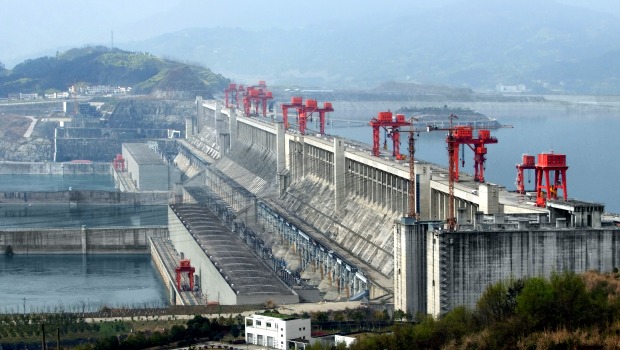The riches contained in this questionnaire with multi-award-winning investigative journalist Michael Bilton rival the wealth of his decades-long output at the London Sunday Times and as a documentary film-maker.
Read on to learn details about his research methodology, and why a significant investment of time is the most critical component of each investigative report.
This is the latest in our “Secrets of the Masters” series of interviews with great investigative reporters.
Share with us a story or investigation that you pursued and the impact it had.
Working on a documentary film and then a book about the My Lai massacre during the Vietnam War took up a three years of my life when I was in my early forties.
A colleague first mentioned the subject on the 20th anniversary of the massacre, which happened on 16th March, 1968, at a small village not far from Quang Ngai. Five hundred unarmed civilians were slaughtered by a company of US soldiers in a search and destroy mission. I was aged 22 when news filtered out in 1969.
The fallout gripped not just the US but also the entire world. It was a clear turning point in the war. The American mother of one soldier famously said that she sent the US Army a nice boy, and they sent home a murderer.
After momentous events, it often takes a gap of at least a few decades before the real story can be told, so when the subject came up over lunch one day, it was one of those rare moments when the hair stood up on the back of my neck. It meant tracking down those who took part, as well as finding the survivors still living in Vietnam. Most soldiers who were at My Lai had buried themselves away, not wanting to be found.
First we had to learn what the real story was. Most people remembered the court martial of a young officer called William Calley, who was the only soldier found guilty, in his case of ‘murdering twenty two Oriental human beings’. He spent only a few months in prison, having appealed against a life sentence. The prison term was cut and he was then paroled. The prosecution referred to 100 people being killed in an “incident’ when the real figure was a massacre of more than five hundred civilians.
There was also a deeply shocking swathe of other war crimes involving rape and sexual sadism. While Charlie Company were busy in the hamlets around My Lai, Bravo Company were slaughtering another ninety unarmed villagers a mile and a half away at Co Luy.
There was no internet, so everything in terms of research had to be legwork. It took us months and months of trawling through court documents, gathering names, and recording the important details that would eventually allow us to track down who was involved – often basic stuff was critical – full and exact names, dates of birth, social security numbers. Then we had to go see these people, often returning to towns like Gulfport and Jackson, Mississippi, several times in order to find a particular individual we were keen to talk to. Many names in the records of the US Army’s official investigation (the Peers Commission) were redacted and replaced with identifying code letters.
Today the material is all online and electronically searchable. Now you can search all 31 volumes of verbatim evidence transcripts at once, using key word searching. In the late 1980s it was a case of trawling through nearly seventy boxes of documents, making notes; this was in addition to the one hundred thousand pages of transcripts for Peers. And first we needed to break the codes to determine who was who. We had help from the public affairs office at The Pentagon and especially the Judge Advocate General’s department, enlightened senior officers who saw the value of what we were doing. We tracked down the original army investigators’ files at Fort Holabird near Baltimore, and were given carte blanche to look at what we liked.
It was only then that we realized probably forty-five people were actually involved in the killings, rapes and sexual assaults at My Lai. A massive cover-up was exposed by Peers which went to the top of the Americal Division, yet only a handful of soldiers stood trial and Calley was the only one convicted.
But there were also heroic and noble deeds done on that day. The stories that also needed to be told were of people like Harry Stanley, who refused orders to kill people even when he had a gun pointed at his head by Calley; and men like Hugh Thompson Jr., who risked his life and that of his helicopter crew to rescue old men, women and children about to be shot down. They turned their own machine guns on Calley and his men and threatened to open fire if they didn’t stop the killing. But who later became the villain for some people in Congress? Hugh Thompson. He had buried himself away in Louisiana when I found him, despite having been courageous in Vietnam and a decent human being. He had a middle name – Clowers – and it was because I had made a note of that somewhere that I managed eventually to locate his very elderly mother, via driving license records, calling from state capital to state capital until we found a contact. He had the same name as his father, who had died seven years earlier, and his parents had lived in Texas. Hugh’s mother never changed her telephone number after Hugh’s dad died, so they were still in the phone directory under his father’s name. She passed him my number, he phoned and two days later we were sat down talking to each other. He cried his heart out.
Another guy – Fred Widmer – had shot a little boy, who had been badly injured, to put him out of his misery. He knew within seconds he had made a dreadful mistake, and it haunts him still. When I first made contact with him he said “I have been waiting to talk about this for twenty years.” I flew to his hometown and we sat downstairs in his den for eight solid ours talking, without a break. He had not spoken about it, not even to his wife.
There were plenty of others who refused to take part also. We did talk to killers – like Vernado Simpson who admitted killing 25 – 30 people that day, scalping and disemboweling people. His life was wrecked by a moment of utter madness far away from home when he was 19 years old. He tried suicide many times, and finally killed himself about a year after we filmed our extraordinary interview with him.
The upshot was our film and book Four Hours in My Lai, which is still in print after twenty years and is used in many university courses and in military colleges around the world. The film won an Emmy in the US and a British Academy award in the UK.
The prime impact has been to get young people to focus on and think about the realities of war. Many, many soldiers are coming back from Afghanistan and Iraq severely traumatized – it is a time bomb waiting to go off and many are taking their own lives because they cannot cope.
Hugh Thompson and his crew member Larry Colburn were awarded the Soldier’s Medal by the US Government, following publication of our book. Hugh died a few years ago and Larry remains one of my closest friends. One thing we achieved, of which I am most proud, is that we brought the pair together after a gap of twenty years. They had been searching for each other all that time.
What is the path that led you to investigative journalism in the first place?
Like most journalists, it came from being a reporter on my local paper. In my case it was the discovery in 1970 of a German bomber, which crashed locally during World War Two. It had killed thirty local children in a cinema when it dropped its bombs. It is that ripples-on-the-pond thing; one act can affect many many lives. So I wanted to tell the story of the aircraft which was being dug up and began investigating exactly what happened from the time the plane took off to when it crashed.
I had to do it in my spare time because local news stories came first, and this was a feature story which I was taken over by, as happens with most investigations. It took me to a churchyard where the crew were buried and I found a woman who regularly had put flowers on the graves, because her son had been shot down over Germany and she hoped someone over there was doing the same for her boy. One day a wreath of flowers arrived at the grave via the International Red Cross and this lady was put in touch with the mother of one of the crew in East Germany. She sent her a photo of her son and got one in return. I never expected to be able to publish a photo of one of the crew of the plane when I set out to tell the story. Following your nose was a good lesson.
What methods, techniques and tools have served you best as an investigative journalist?
There was something written on a blackboard when I was a student which has stayed with me. It was left there from the preceding philosophy class and it said: “The question is: What is the Question?”
It is the most profound summation of what our work is about. Until you know the right questions to ask, you can never get to the truth. That means throwing out a broad net and becoming a minor expert on a subject before you work out what story want to tell. It is time consuming, labor intensive, and it is why people like us are not really interested in money, riches, fame, or glory.
I enjoy working occasionally in groups and one of the most satisfying things that happened with ICIJ was on the Collateral Damage project when Nat Heller organized a small regional conference of European members who were interested in extraordinary rendition and torture, following 9/11. There were only five of us meeting in Brussels, including Paul Radu and Leo Sisti. It was so helpful to share data and ideas – it personified what ICIJ is.
But for the most part I work alone and have done for nearly 40 years. University libraries, archives, microfilmed newspapers, company records, you develop a skill for sensing where you should be able to find useful material/documents.
First and foremost now is to start with everything written on a subject, especially contemporary accounts; see who is involved, what organizations they worked for. I’ve got a fairly big library of books, and public information journals, i.e.: I buy Who’s Who every five years; various almanacs, something to get me started when undertaking basic research.
Notes from reading get transferred to a computerized database, the kind I started many years ago with my first Apple Mac when I was working on My Lai. You have to be able to manage the information you gather and systematize it, so you can pull it out later. I create lots of PDF files, especially newspaper / magazine stories, government reports/ interesting blogs etc. It’s research, research, research. I still cut clippings from newspapers. I find hard copies of printed material easier to manage at the writing stage, and then filter down the material for when I’m writing. I’ve created my own archive, like a newspaper clippings morgue/library – I always spend an hour a day pouring through various British and American newspapers.
You always gather more material than you will use, but that is the way it is. Save it, it is cheap to get spare hard drives. You’ll have a lifetime of use from it.
How has the increasing importance of digital and online media (especially the immediacy factor they emphasize) impacted the quality and practice of investigative journalism?
This has a ying and a yang side to it. Technically the internet has revolutionized everything. We can search more data, find obscure material, store it, analyze it, and then communicate with folk around the world, who might be able to assist. It is extraordinary. But you still have to determine what is the question you want answered. So spending time thinking about an issue, so you understand it properly is still the prior requirement of all great investigations. What is the story we need to tell. And time costs money.
And there is the rub. Many news organizations have abandoned investigations because they cannot afford them. Some of the quality broadsheets around the globe realize the value of investigative journalism – especially in the United States. Trouble is too many news editors/editors won’t invest, in case it doesn’t lead to a story.
We used to have a saying when I worked on the London Sunday Times in the late 1970s, especially when we were frustrated and couldn’t convince someone this is a really good story – “A story isn’t a story until it has appeared somewhere else”. It is slightly unfair because, essentially, the fault is ours if we cannot convince an editor, we simply hadn’t done enough work, hadn’t come up with the goods.
“Tell me, why should I care about this story?”, the great Don Berry, our wonderful features editor, would say. If you couldn’t make him care, it was usually because the story didn’t have legs. I was given limitless freedom when I was a member of the INSIGHT team. Too many editors write the headline before the story has been researched.
I was lucky, we had an enlightened genius of an editor in Harold Evans who trusted his editors and reporters. We travelled the world to get the story because in the pre-internet age the economics of newspapers was different and we had a philanthropic proprietor who was truly proud to own a newspaper like the Sunday Times.
Today they are owned by conglomerates looking at the bottom line. Budgets are cut, departments are slimmed, expenses are slashed, and far too many so-called investigations are nothing more than sting operations in which some hapless individual is trapped into doing something or saying something by undercover reporters with a video camera hidden on a shelf or in a bag.
Occasionally, very occasionally, they reveal something worthwhile, which is properly in the public interest. More often than not, someone in public life is left embarrassed, the newspaper then claims a world exclusive. I don’t think so. This is not journalism as I understand it.
Have you employed a lot of data-based methods in your investigative reporting? If yes, what kinds of data do you use and how?
When I was writing about fraudster Alan Stanford, and his activities with his offshore bank in Antigua, it was important to read his company reports, the financials, to understand the process of how these companies worked. I also would look at a bunch of SEC and IMF data, so I knew what the context was, for example, when he gave the Antiguan government loans. They were hugely indebted to him. On an investigation into child abuse, it was crucial to look at government and other agencies reports to study patterns of behavior, annual returns of criminal charges, prosecutions, convictions etc.
So data and databases are an important aspect of our work. People need to develop their skill base to interrogate them properly. You have to put the thinking cap on and work out what potential resources are available to you. Don’t be afraid to call experts and ask for guidance. If the subject is important to them, they are often only too pleased to talk about their area of expertise. They work alone, many of them, – just like us, so they relish talking to reporters about their work.
Talk about your approach to stories. Is there anything unusual about the way you conduct your research or choose your themes?
I employ old-fashioned, tried and tested ways of researching stories. Find what the story is, get a body of knowledge so you can ask sensible questions, then go and talk to people, either experts or the individuals at the heart of an issue. But you cannot ask them the basic questions – you have to find the answers to this stuff yourself, do your homework, otherwise you won’t be taken seriously.
Looking back on it, I have been involved with very bleak themes over the years – death, massacres, serial murderers, war, child abuse, mercenaries –- even now I am working on a story for a new book which is an offshoot of the ICIJ Collateral Damage project about torture and renditions after 9/11. I came across an old speech by a former intelligence chief who said there had been a Gestapo-type torture centre in London during the Second World War. People had died under interrogation, but I didn’t believe it at first. It has taken me over trying to get to the bottom of it. You have to name the guilty men; otherwise it’s a waste of time. How and why could something like that happen 70 years ago when we were supposed to be occupying the moral high ground fighting the Nazis. Well, the issues didn’t change. We allowed extraordinary rendition, water boarding and other tortures in the war on terror.
What do you consider some of the most important lessons you have learned over the years?
Don’t forget your family. Truly, in my thirties and forties the story seemed everything and I spent long, long periods away from home, travelling in pursuit of the truth. But if you have a relationship and children, you have to make time for them. It can cost you and the people you love very dearly if you do not. I am guilty of it to my eternal regret.
Professionally, you have to be totally honest with yourself. Sometimes the story is not there – so you cannot make an editor care about it.
Also, differentiate in your relationships between those that are personal and those that are business. You may have to write about people with whom you have essentially a business relationship and then the friendship goes out the window. I never joined any clubs, like Rotary or Round Table – in case I had to write about fellow members. Don’t confuse the two, personal and business, and always be sure people know they are talking to a journalist. Don’t ask me to keep a secret. I would prefer not to know, so that I can find out for myself, and then publish it if needs be. My kids can tell me secrets and I’ll keep them. Those I can’t will be from – businessmen, politicians, policemen, people in public life. So, don’t tell me anything you don’t want to see in print.
H.L. Mencken warned of the kind of journalists preferred by people who have secrets and who want you to censor yourself: “Reporters come in as newspapermen, trained to get the news and eager to get it. They end as tin-horned statesmen, full of dark secrets and unable to write the truth if they tried”.
What are the key elements that make an investigative story truly “click”? What do they have to have and what should they not be missing?
We are back to “why should I care?” There has to be a central issue which needs exposure, which calls out for your attention as a reader or viewer when we put it in front of you.
Occasionally you will write about an individual – but more often than not it is institutions, corporations, governments – people with power, issues involving justice and injustice. Providing they are not having sex with children, I don’t care about people’s sex lives. However, when the President of the IMF has sex with a chambermaid in a New York hotel and she claims she was raped, the story has to be thoroughly investigated. Was it, given what we now know?
When a billionaire pedophile gets away with 18 months in the slammer for crimes which should have got him twenty years, then it should be investigated. Plea bargains and Federal non-prosecution agreements organized by the Justice Department need to be investigated. Miscarriages of justice frequently involve rich and powerful people and their politically-connected lawyers making sure prosecutions are kept to a minimum. Don’t waste time on trivia.
What is the biggest single threat to investigative reporting and what advice can you give to others?
Corporations, governments, even public institutions that were once benign, now employ batteries of very expensive public relations people trying to throw you off the scent. Occasionally one of us becomes one of them and is paid handsomely in the process, which is what sometimes happens when poachers become gamekeepers.
I once had the boss of a police authority which was involved in serious cases of sex discrimination against women police officers, call up my editor and tell him that I had once applied to become a member of that same police authority. Because I was not selected, he said I had a grudge and was not to be trusted.
My editor, the indomitable Robin Morgan, replied to him: “I think Mr. Bilton should be congratulated for volunteering to help his local community by doing public service and the fact that you think he was biased is outrageous. I shall now tell him to re-double his efforts and expose why you are keeping secret massive payments to former female police officers. You have just slandered him and I have made a note of our conversation. I have no doubt you will be hearing from his lawyers. Good day to you”. Later that afternoon the police authority boss came on the phone offering a fulsome apology. The lesson from all this: Work hard for great editors; they are few and far between.
What other tips would you give young, emerging, investigative reporters?
Don’t do it if you want fame and fortune. Develop a passion for your subject. Learn to accept it is a lonely road, but a fulfilling one. Life is not a rehearsal, so be sure this way of life is something you are keen on, because it will eat up your time. Only a few colleagues will know the hard work that you have had to put in on a story, for they will have trod that same foot-slogging path.
Remember those you love and why you love them. Give them something really precious: your time, when you can.
You will make a few friendships along the way that will last a lifetime and as W.H. Auden wisely wrote: “…If equal affection cannot be, let the more loving one be me.” It can be read and understood on many levels and when you have finally cracked its true meaning, you will have led a very full life and learned to park your ego where it needs to be parked.



